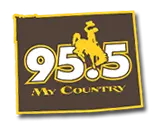
Wyoming to Begin Offering Mortgage Assistance in May
After a trial run ended in February, the Wyoming Department of Family Services (DFS) is going to launch the Homeowner Assistance Fund Program on May 2.

The HAF Program will prioritize mortgage delinquency over other past-due expenses and will provide people a maximum of $17,000 in assistance.
Corrine Livers, Economic Security Programs Administrator for the DFS, said that the pilot program initially had a max of $15,000, but they increased to an amount that made sense based on the data they collected.
"We do work with a steering committee and a policy group, and it really was a decision based off of what the delinquency seemed to be during the pilot versus what we could do the most good for in regards to how many families we could serve," Livers said. "It really felt like it was in that middle ground between being able to bring a majority of loans whole. Understanding though as we move along in the process, if people continue to not make their payments, they're going to continue to get more delinquent. There isn't going to be a timeframe that can be perfect, this is what was estimated to be the most good."
Other eligible expenses will include past due payments of utilities, property taxes, homeowners insurance, and homeowners association dues, but none of those expenses can be greater than $17,000.
The money for the program, $50 million, comes from the American Rescue Plan Act, is separate from the money provided for the Emergency Rental Assistance Program, and Livers said should probably run out before the funding deadline is reached.
While the HAF will help people pay off delinquent payments, Livers said DFS will make sure people talk with housing educators beforehand if the amount they owe is more than what DFS can provide.
"We've got some things built into the process to ensure people are talking to housing educators," Livers said. "Within the policy, if somebody is delinquent more than they can pay, so they're delinquent more than $17,000, or they indicate they cannot make payments after assistance, they are going to be required to talk to a housing educator prior to payments being made on their behalf. This ensures that they're making the best decision for that family."
Korin Schmidt, DFS Director, said:
"We highly encourage homeowners delinquent on their mortgage payments to talk to their mortgage servicer before the program opens," Schmidt said. "Homeowners should consider all options available to allow them to stay in their homes safely and long term. If you receive HAF funds first, you might not be eligible for options like having your monthly payment lowered."
While DFS doesn't know exactly how many people are eligible for the program, an estimate by the Wyoming Community Development Authority, which is responsible for 24% of all mortgages in the state, showed that between two and four thousand people in the state are delinquent on their mortgages.
Another mortgage provider in Wyoming, Wells Fargo, has 220 loans that are delinquent, with an average delinquency amount of $15,000.
Wyoming homeowners must meet the following eligibility criteria for the HAF Program:
- Must own a property in Wyoming and occupy the property as the primary residence.
- Must have a total annual household income at or below 150% of the area median income.
- Must have experienced a COVID-related financial hardship after January 21, 2020, that has caused the household to become past due.
- Must be delinquent by at least one payment, including due to a forbearance period, and only covers arrears.
- The loan must be the first lien on the property and the homeowner must not intend to sell the property within six months of receiving assistance.
Required documents include the most recent statements showing delinquencies and/or arrearages, identification, and proof of income, all of which can be uploaded online.
Livers said that the program initially had people send documents physically, but to help streamline the process, they allowed people to send the required documents electronically.
Throughout the process of homeowners interacting with the HAF, they must come to an agreement with a housing educator and their service provider, and Livers said she doesn't believe anyone in the pilot program chose assistance over the suggestions of a housing educator.
"They're all working together at this point to determine the best course of action. There's a form that comes through the housing educator that would inform us what their decision is," Livers said. "If that decision is to pursue other options outside of HAF, we would honor that decision...I think we're focusing on the fact that housing educators are trained, they've been doing this for a lot more years than HAF has been afforded to us in that there will be all the work necessary to make sure the homeowner does what's best for them."
30 Ways To Say You're From Wyoming Without Saying You're From Wyoming
More From My Country 95.5









